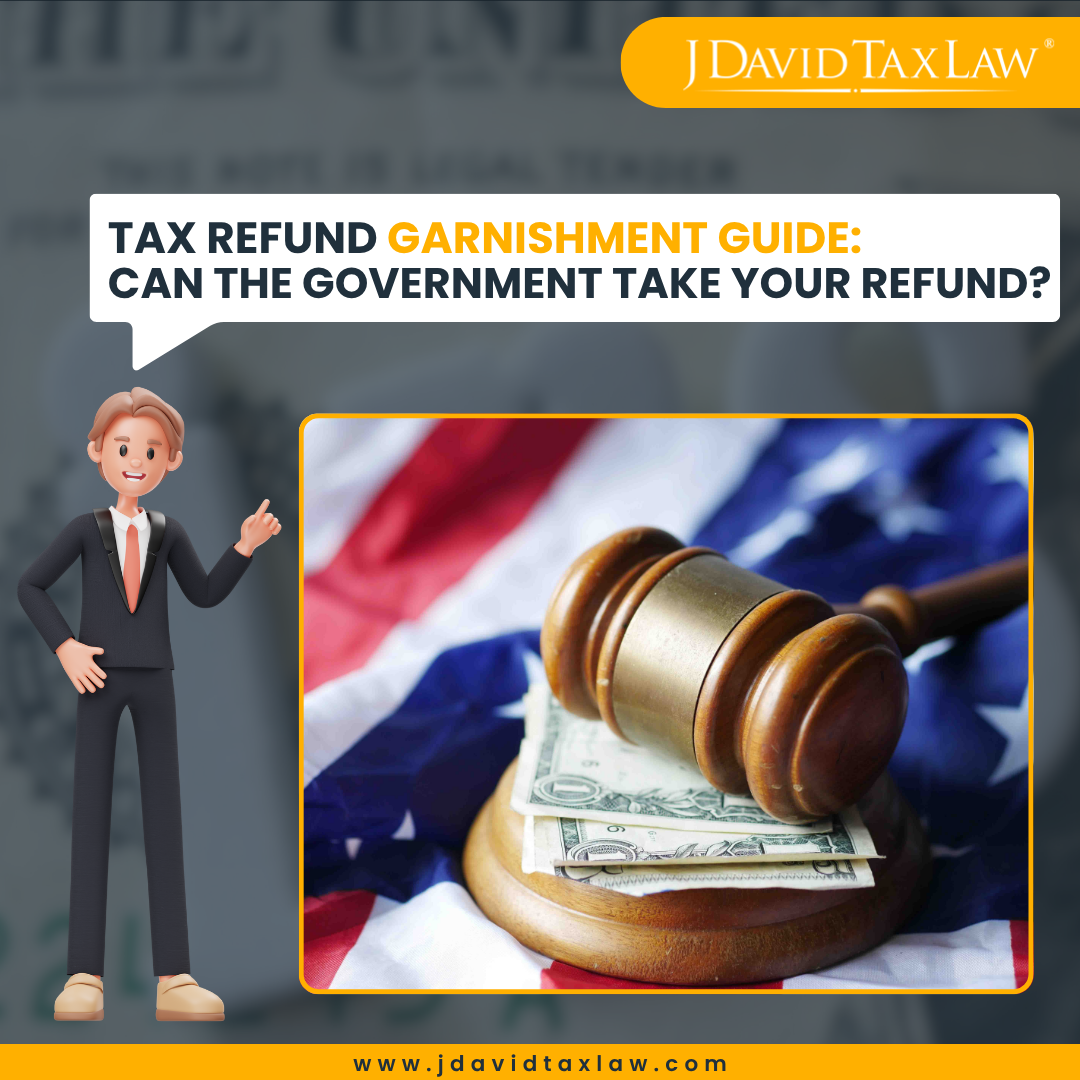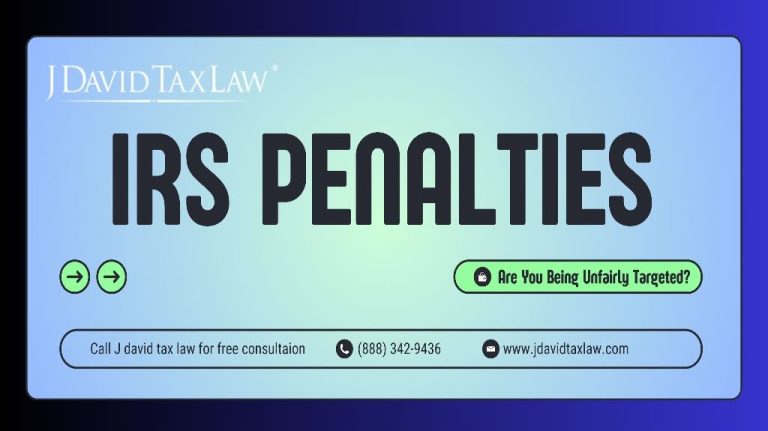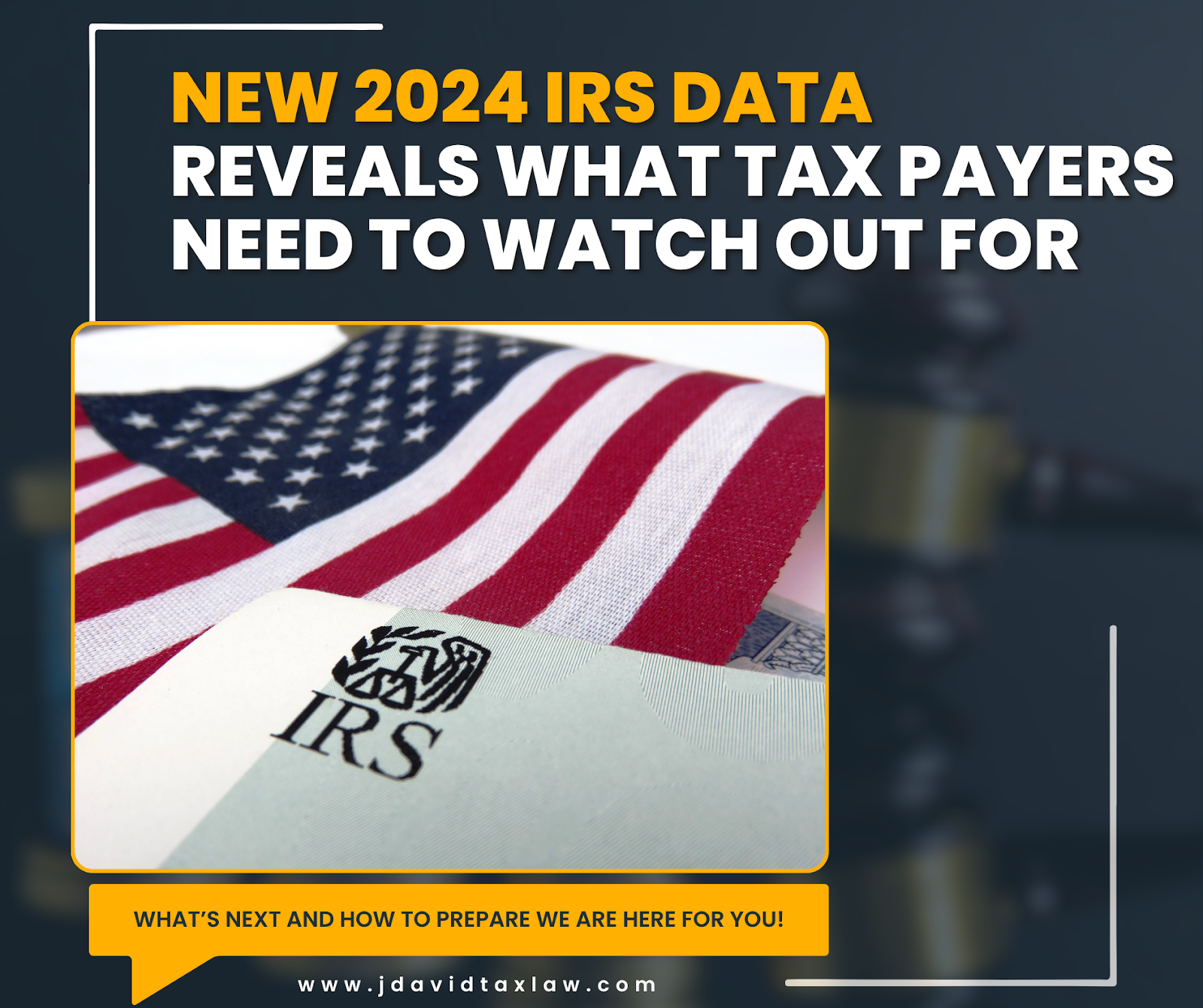
Tax refund garnishment allows state and federal agencies to take your refund for unpaid debt. With the right steps, it’s preventable. Call (888) 342-9436.





Taxpayers often feel anxious about IRS penalties, which can seriously disrupt personal finances. The Internal Revenue Service imposes these penalties under complex rules that can seem mysterious to many. You might wonder if the penalties are justified or if you’ve been specifically targeted. The penalties range from minor issues like late filing and late payment penalties to severe repercussions for willful neglect or fraud. Each penalty has a specific method for calculation and certain conditions that trigger it. With significant consequences at stake, understanding these penalties is essential.
IRS penalties are fines imposed for various tax-related infractions, mainly due to late filings and late payments. Each year, the IRS issues about 40 million penalties across roughly 150 different types. These penalties enforce compliance with U.S. federal tax laws.
There are certain provisions in the Internal Revenue Code (IRC) that allow for penalty relief under specific conditions, such as if a taxpayer received incorrect written advice from the IRS. If the IRS denies penalty relief, taxpayers have the right to appeal by requesting a hearing with the IRS Independent Office of Appeals within 30 days of receiving a denial notice.
Additionally, the IRS can assess an underpayment penalty if taxpayers fail to pay sufficient estimated taxes throughout the year. This penalty increases depending on the amount of unpaid estimated tax. Understanding these penalties and the options for relief can help taxpayers manage their obligations and avoid unnecessary charges.
The IRS issues penalties as a measure to ensure adherence to tax laws and to promote timely and accurate tax compliance. Under IRC § 6601(a), when taxes are not paid in full by the due date, penalties begin to accrue, along with interest, until the entire debt is settled. Individuals who fail to file or pay their taxes on time are generally subject to both penalties and interest on the unpaid taxes.
Condition | Penalty | Details |
Late Filing | 5% per month | Accrues on unpaid taxes for each month the return is late, up to a maximum of 25%. |
Maximum Penalty for Late Filing | 25% | Caps the late filing penalty. |
Underpayment of Estimated Taxes | Variable | Calculated based on the difference between the required quarterly payments and the amount actually paid. |
Interest on Unpaid Taxes | Accrues until full payment | Interest grows on any unpaid tax and penalty until the entire amount is settled. |
Reduction or Waiver of Interest | Possible under specific conditions | Interest on penalties can be lessened or waived if there’s an IRS error or an unreasonable delay caused by the IRS |
The IRS issues around 40 million penalties annually, covering nearly 150 different types of penalties. These penalties address a broad range of tax-related infractions, with late filing and late payment penalties among the most common. Some other IRS penalties are listed below:
Failure to File Penalty
Failure to Pay Penalty
Underpayment of Estimated Tax Penalty
Accuracy-Related Penalty
Fraud Penalty
Negligence Penalty
Civil Fraud Penalty
Trust Fund Recovery Penalty
Return Preparer Penalty
Frivolous Return Penalty
Penalty Abatement
Information Return Penalties
Employee Plans and Exempt Organizations Miscellaneous Civil Penalties
Failure to Deposit Penalty
Erroneous Claim for Refund or Credit Penalty
Taxpayers might face IRS penalties for a variety of reasons, yet there are opportunities to seek penalty relief such as reasonable cause abatement or the First-Time Abate program.
The IRS explicitly states that forgetfulness does not qualify as a “reasonable cause” for penalty relief. If penalty abatement is denied, taxpayers have the option to appeal by requesting a hearing with the IRS Independent Office of Appeals within 30 days from the receipt of the penalty rejection letter. This process provides a structured pathway to contest penalties and seek reconsideration.
For abatement guidance and expert representation in appealing IRS penalties, contact J David Tax Law. Our skilled professionals are ready to assist you with navigating the First-Time Abate program or pursuing reasonable cause abatement.
The IRS First Time Penalty Abatement (FTA) program helps taxpayers who’ve made a mistake for the first time. If you haven’t had penalties like late filing or failed to pay in the past three years, you might qualify for this break. The program doesn’t cover all penalties, especially those for very specific tax issues. Even if you owe taxes, you can ask for this help, but remember, the penalty for not paying your taxes on time will keep growing until you’ve paid off the tax. To apply for the FTA, you need to have a good history of following tax rules. You can find all the rules for this program in the Internal Revenue Manual, which explains who can get this help and how to ask for it.
To challenge penalties due to IRS errors or delays, you should use IRS Form 843, titled “Claim for Refund and Request for Abatement.” This form is specifically for disputing interest charges that might have been wrongfully applied due to IRS mistakes or unnecessary delays.
In addition to abatement options through appeals and formal requests, the IRS offers automatic penalty relief programs for certain situations. These include:
First Time Abate: This widely used administrative waiver provides relief for individuals and businesses experiencing their first instance of noncompliance, under specific conditions outlined in IRS policy statements and other formal communications.
Automatic Relief for New Legislation: Sometimes, when new tax legislation passes, the IRS may offer automatic relief to help taxpayers adjust to changes without incurring penalties.
Other Identified Circumstances: The IRS may also initiate automatic relief programs in response to other situations they identify, such as widespread disasters or administrative errors affecting multiple taxpayers.
Filing taxes on time is crucial to avoid the IRS’s late filing penalties. If a tax return is filed late without an approved extension, the IRS imposes a penalty to discourage delays and encourage timely tax compliance. This penalty begins at 5% of the unpaid taxes for each month or part of a month the return is late, accumulating up to a maximum of 25% of the unpaid taxes. It’s important to note that failing to file can have consequences even if no tax is owed or a refund is due.
For businesses and individuals handling 1099 forms, timely submission is crucial to avoid hefty penalties. Like personal tax returns, the penalty for late filing of 1099 forms increases the longer the delay. Specifically, there’s a 5% penalty of the taxes that should have been reported for each month or part of a month that the form is delayed, with the penalty capping at 25%. If a 1099 is filed more than 60 days late, a minimum fee of $435 is imposed by the IRS, regardless of the tax amount that should have been reported.
The IRS provides options for penalty abatement for late filing if taxpayers can demonstrate reasonable cause for their delay and confirm it wasn’t due to willful neglect. To qualify for such an abatement, you typically need to show evidence of compliance efforts, such as a history of previous timely filings or attempts to settle any taxes owed. The IRS also makes special exceptions for members of the Armed Forces serving in combat zones or engaged in contingency operations, offering them additional leniency regarding tax-related deadlines. This approach ensures that those who face genuine hardships or unique circumstances have a pathway to request relief from penalties. It’s important to note that while the IRS may forgive penalties, interest accrued on unpaid taxes and penalties usually continues to accumulate until everything is fully paid.
The IRS imposes penalties to encourage timely tax payments. If you miss the deadline for paying your taxes, you’ll face a late payment penalty.
Late payment penalty calculation
Calculating late payment penalties with the IRS involves a clear understanding of specific rates and conditions. Here’s a quick breakdown:
Standard Penalty: 0.5% per month, up to 25% total.
Post-Final Notice: 1% per month, starting ten days after the notice.
With Installment Agreement: 0.25% per month for timely filed returns under the agreement.
It’s important to note that these guidelines were revised in 2008, so penalties for filings before that year might follow different rules.
The IRS offers penalty abatement for reasonable causes when extenuating circumstances, like natural disasters or serious illness, prevent timely tax payments. While penalties may be waived under these conditions, interest charges are generally only reduced or waived due to substantial IRS errors or delays. The failure-to-pay penalty can accumulate up to 25% of the unpaid taxes but is typically considered for abatement only after the taxes are fully paid.
Setting up an installment agreement with the IRS can be an effective way to manage your tax liabilities if you’re unable to pay the full amount by the due date. These agreements reduce the failure to pay penalty to 0.25% per month for the duration of the agreement, significantly lower than the standard 0.5% per month. Keep in mind, if both failure to file and failure to pay penalties are assessed in the same month, the IRS adjusts the penalties so that the combined total does not exceed 5% for that month.
Under the Internal Revenue Code (IRC) § 6662, accuracy-related penalties are imposed when tax returns contain errors. These penalties are typically 20% but can increase to 40% for more severe infractions, such as gross valuation misstatements of property. Common reasons for these penalties include negligence, substantial understatement of income, or a significant misstatement of property value.
Several key factors are taken into account when determining the imposition of accuracy-related penalties:
Taxpayers can challenge accuracy-related penalties if they believe there’s a valid reason for abatement, such as reasonable cause and good faith. To dispute these penalties, taxpayers should provide detailed documentation and explanations to the IRS. This might include records that demonstrate due diligence in tax calculations or clarify misunderstandings about reported values.
For more severe penalties like those for gross valuation misstatements, taxpayers face a higher burden of proof. They must convincingly demonstrate that their valuations were reasonable and made in good faith. Engaging a tax professional can be beneficial, as they can provide expert advice on navigating the complexities of the IRS’s standards and help in building a strong case for abatement.
If you have been assessed any penalties by the IRS, it’s crucial to present a strong case. Our team at J David Tax Law is equipped to help you demonstrate that your valuations were reasonable.
Tax fraud is defined by the IRS as a willful and intentional effort to evade tax regulations or defraud the government. The Internal Revenue Service (IRS) takes tax fraud very seriously, imposing strict penalties on those who intentionally deceive or attempt to evade tax laws.
The consequences for committing tax fraud are severe. Under Section 6663 of the Internal Revenue Code (IRC), individuals or entities found guilty of fraud face a civil fraud penalty. This penalty is substantial—75% of the tax underpayment attributable to the fraud. These penalties serve as a powerful deterrent, emphasizing the seriousness of such offenses and underscoring the importance of adherence to tax laws.
Though facing fraud penalties from the IRS can be intimidating, taxpayers have avenues to defend themselves by demonstrating “reasonable cause” for their actions.
If you’re dealing with IRS penalties and feel overwhelmed by the complexities of tax regulations, don’t face it alone. Contact us today at (888) 342-9436 for a free consultation and take the first step towards resolving your IRS penalties with confidence.
Our tax relief attorneys specialize in tax problems and tax debt resolutions
Get started with a 100% free consultation

Tax refund garnishment allows state and federal agencies to take your refund for unpaid debt. With the right steps, it’s preventable. Call (888) 342-9436.

Read the latest news about the 2024 IRS data and key insights from J. David Tax Law. Call (888) 342-9436.today for a free consultation.

Facing an IRS collection notice? Learn what it means, how to protect your assets, and how we can stop wage garnishments and levies. Call (888) 342-9436
Get IRS Tax Assistance Within 24 Hours